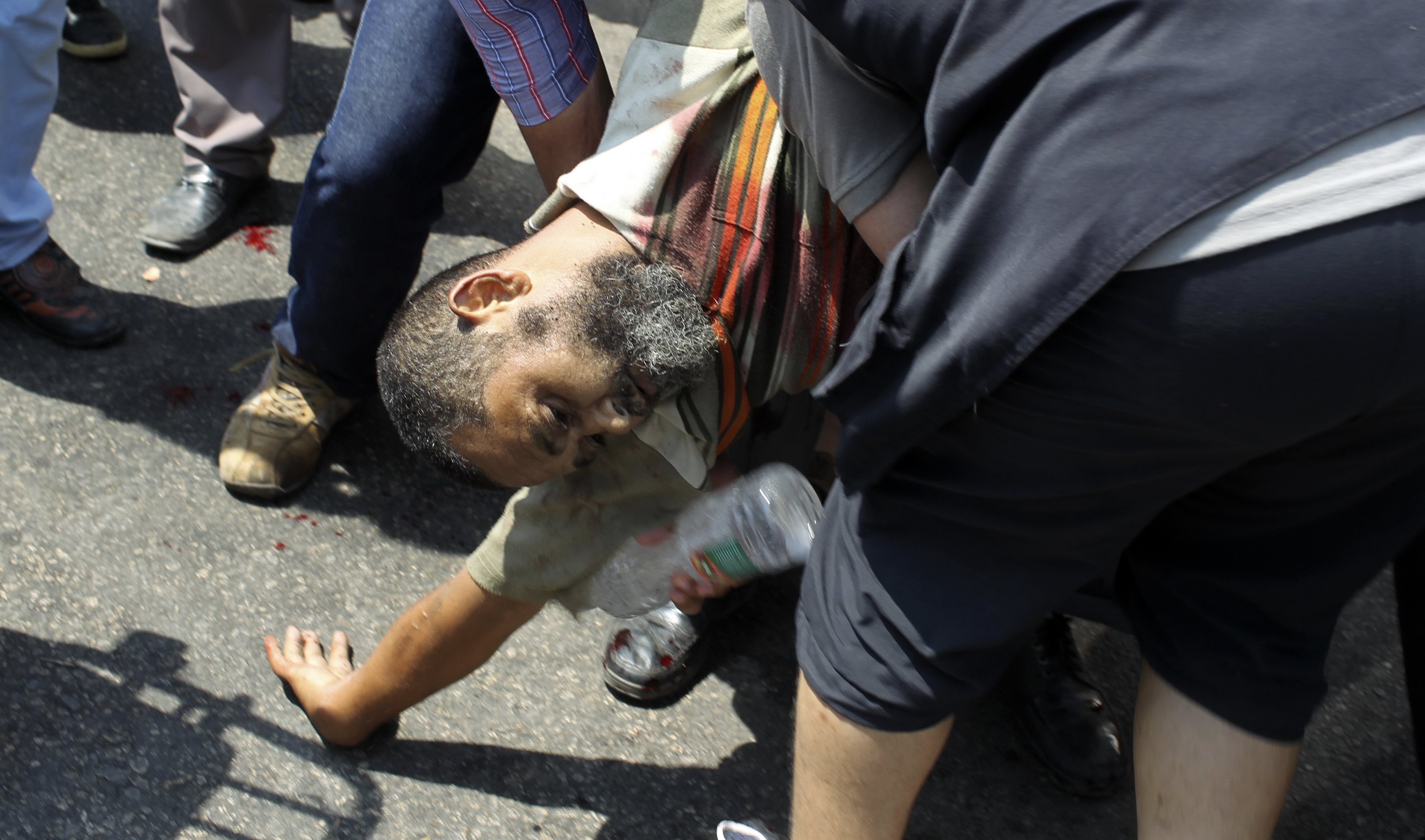Latest NEWS
- Aswat Masriya, the last word
- Roundup of Egypt's press headlines on March 15, 2017
- Roundup of Egypt's press headlines on March 14, 2017
- Former Egyptian President Hosni Mubarak to be released: lawyer
- Roundup of Egypt's press headlines on March 13, 2017
- Egypt's capital set to grow by half a million in 2017
- Egypt's wheat reserves to double with start of harvest -supply min
- Roundup of Egypt's press headlines on March 12, 2017
NGO blames state for Egypt violence in 2013

Supporters of deposed Egyptian President Mohamed Mursi carry a protester injured during clashes with riot police and the army in the area of Rabaa Adawiya square, where they have been camping, in Cairo August 14, 2013. REUTERS/Asmaa Waguih
CAIRO, June 18 (Aswat Masriya) A Cairo-based rights group has urged for the accountability of those responsible for the violence that swept Egypt last year, including state and non-state actors.
“The state bears primary responsibility for what may be the worst acts of violence in Egypt’s modern history, with thousands killed and injured,” the Egyptian Initiative for Personal Rights (EIPR) said in a report it issued on Wednesday.
The report affirmed that the state responsibility for human rights violations was seen in the security forces’ direct participation in abuses or their failure to protect citizens’ lives and property in attacks on them by non-state actors.
It also placed responsibility for certain acts of violence on members and supporters of the Muslim Brotherhood and deposed President Mohamed Mursi, "for their direct involvement in violence against public institutions or private property or their use of hate speech and incitement to sectarian discrimination."
The report was submitted to the government's fact-finding commission investigating the events of 30 June 2013 and their aftermath upon its request.
On the government's forced dispersal of the pro-Mursi protest camps in August, the report said that there was an "unnecessary excessive force and unjustifiable failure that led to the death of hundreds."
It estimated the number of victims, where clashes lasted for at least 11 hours, to range between 499 (according to the Forensic Medicine Authority) and 932 (according to data from the Egyptian Center for Economic and Social Rights).
"The latter number appears to be more accurate and is close to the estimate of former Prime Minister Hazem al-Beblawi, who referred in media statements to approximately 1,000 casualties. The dispersal of the Nahda sit-in, next to Cairo University, took approximately two hours, leaving 87 people dead."
EIPR said that the security forces failed to plan for the dispersal of the sit-in with minimizing human casualties, imposing collective punishment on every person in it.
"Security forces used unlawful lethal force in more than one case, targeting a large number of protesters without evidence that they possessed weapons. In most cases, there were no actual safe exits to protect protestors who wished to leave the site without facing attempts by residents of nearby buildings to harass them."
On the other hand, the report noted that a number of protesters used firearms, bricks, Molotov cocktails and primitive homemade shotguns during the dispersal, while a fewer number used live ammunition and shot at police forces, killing several policemen.
In addition to state violence, the report also highlighted two other types of violence that upsurged in the summer; civic and sectarian violence.










